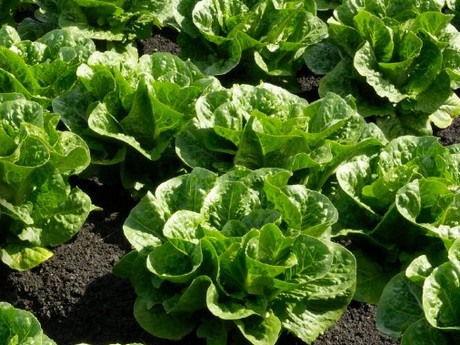There's only 37 days left on the calendar before 2020 starts, but in the US it might feel like a throwback to 2018. Just like last year, there's a recall of Romaine Lettuce in the week before Thanksgiving. And just like last year, greenhouse and indoor grown lettuce are declared safe.
A total of 40 people in 16 states have fallen ill due to an E. coli outbreak in romaine lettuce, according to a report from the Centers for Disease Control and US Food and Drug Administration. Epidemiologic, laboratory, and traceback evidence indicates that romaine lettuce from the Salinas, California growing region is a likely source of this outbreak.

Recall
Therefore the FDA says that consumers should not eat romaine lettuce harvested from Salinas, California. Additionally, consumers should not eat products identified in the recall announced by the USDA on November 21, 2019. The warning applies to all types of romaine from the Salinas region, including whole heads, hearts and pre-cut salad mixes.
Salinas is a major growing region for romaine from around April to this time of year, when growing shifts south to Yuma, Arizona.
By now stores across the U.S. have recalled salad products that originated in California after federal agencies warned they may be tainted with E. coli bacteria. Target, Walmart, Wegmans, Aldi, Sam's Club and others acted on warnings from the Food and Drug Administration and Centers for Disease Control and Prevention.
Hydroponically- and greenhouse-grown romaine is safe
"At this time, romaine lettuce that was harvested outside of the Salinas region has not been implicated in this outbreak investigation. Hydroponically- and greenhouse-grown romaine, which is voluntarily labeled as “indoor grown,” from any region does not appear to be related to the current outbreak. There is no recommendation for consumers to avoid using romaine harvested from these other sources", the FDA says. "If you do not know the source of your romaine lettuce, and if you cannot obtain that information from your supplier, you should not serve, nor sell it."
The FDA and state partners are conducting a traceback investigation to trace romaine exposures to the source. Preliminary information indicates that ill people in Maryland were exposed to romaine lettuce harvested in Salinas, California.
FDA is deploying investigators to the farms in question to try to determine the source and extent of the contamination. More information will be forthcoming as the investigation proceeds.
Additionally, state partners are conducting laboratory analyses of romaine lettuce samples from case patients potentially linked to the outbreak.
Same strains as last year
Genetic analysis of the E. coli O157:H7 strains from patients in this current outbreak are similar to strains of E. coli O157:H7 associated with a previous outbreak from the Fall of 2017 and the Fall of 2018 that affected consumers in both Canada and the U.S. The 2017 outbreak of E. coli O157:H7 was associated with leafy greens in the U.S. and romaine in Canada. The 2018 outbreak of E. coli O157:H7 was associated with romaine in both countries.
After last year’s pre-Thanksgiving outbreak tied to romaine, the produce industry agreed to voluntarily label the lettuce with harvest regions. Health officials said that would make it easier to trace romaine and issue more specific public health warnings when outbreaks happen.
